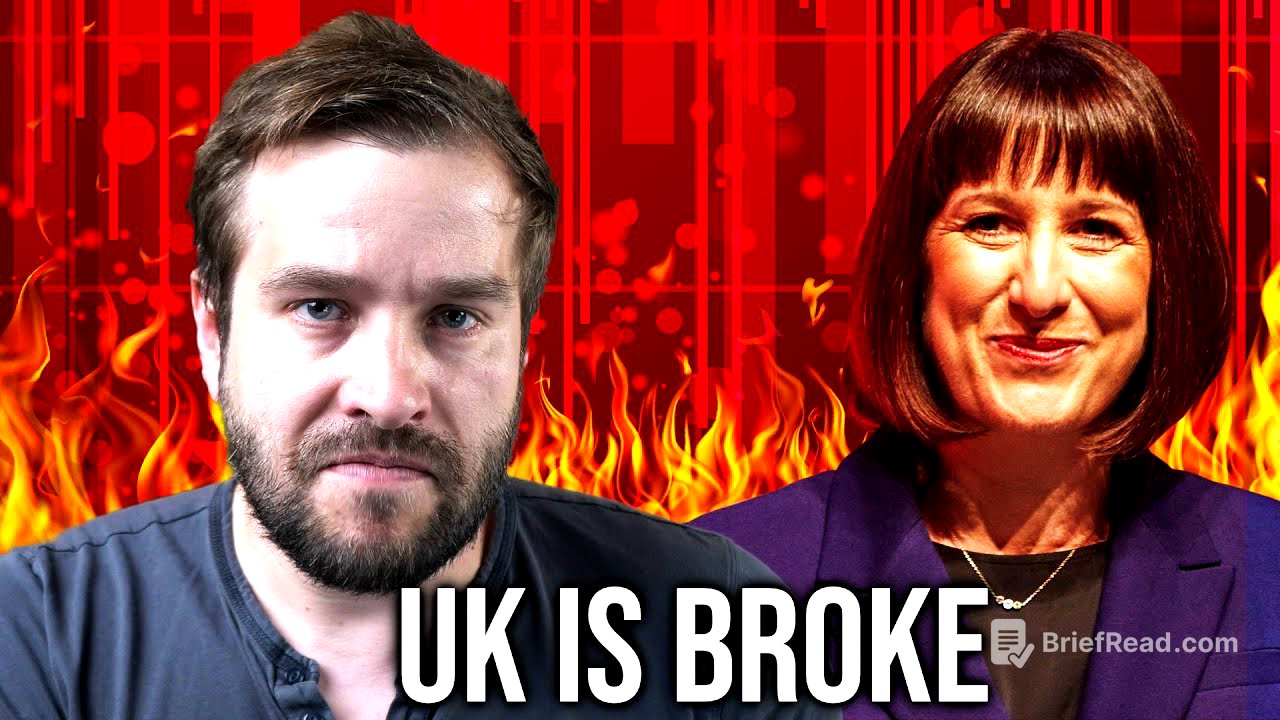TLDR;
This video discusses the UK's economic situation, focusing on government borrowing, business health, and energy prices. It highlights the discrepancy between the Office for Budget Responsibility (OBR) forecasts and actual borrowing figures, suggesting the OBR is unreliable. The video also covers declining business activity, potential tax increases, revised GDP forecasts, and high energy costs due to taxation and marginal pricing policies, not just global gas prices. The presenter criticises the government's lack of action despite warnings from businesses and experts.
- The UK government borrowed £15 billion more than expected, exceeding the OBR's forecast by 11%.
- Business activity in the UK is contracting, raising concerns about a potential economic crisis.
- UK energy prices are significantly higher than in the US due to high taxation and marginal pricing policies, not solely global gas prices.
- The government is criticised for inaction despite warnings about the economic impact of its policies.
OBR Forecast Inaccuracy [0:00]
The UK government borrowed £15 billion more than anticipated in the fiscal year ending in March, surpassing the Office for Budget Responsibility's (OBR) forecast by 11%. The OBR, which predicted borrowing of £137.3 billion just five days before the year's end, missed the mark significantly, with the actual figure reaching £151.9 billion. This inaccuracy raises concerns about the OBR's competence and its role as a reliable source for economic forecasts. The presenter suggests that the OBR is being used to support the government's tax policies with unreliable data.
Business Activity Decline [2:37]
The Standard and Poor's flash UK PMI report indicates that private businesses in the UK are contracting, with the chart showing a downward trend below 50. This level mirrors previous economic "wobbles" and raises concerns about a potential major economic crisis. Rachel Reeves is in Washington to discuss trade deals, but the presenter expresses scepticism about the potential success of these efforts.
Tax Receipts vs Spending [3:38]
In the financial year, the UK government collected just over £1 trillion in tax receipts, a 3.3% increase from the previous year. However, current government spending increased by almost 5%, outpacing the growth in tax income. This disparity may lead to further tax increases in the October budget to address the widening gap. The IMF has also revised its GDP growth forecast for the UK, lowering it from 1.6% to 1.1% due to global economic factors, including Donald Trump's tariff war.
UK Specific Economic Issues [5:17]
Several factors specific to the UK are contributing to a potential economic slump. Consumer confidence has fallen below pre-pandemic levels. Businesses are struggling with increased national insurance contributions, minimum wage increases, and high energy prices. The presenter's business electricity costs are significantly higher than those in the United States, where prices are four times cheaper.
UK Energy Prices [5:59]
Ed Milliband argued that high UK energy prices are due to the country's reliance on natural gas and global commodity prices. However, the presenter points out that the United States, which relies even more on natural gas for electricity generation, has much lower energy prices. The presenter argues that only 20% of the cost of electricity for businesses is natural gas, the rest is operational costs, taxes and profits. The presenter claims that the primary reasons for the UK's high energy prices are high taxation and marginal pricing policies, where all electricity is charged at the highest price, regardless of the source. This outdated system, implemented before modern computing, inflates costs for consumers and businesses.
Business Impact and Government Inaction [10:07]
Anecdotal evidence suggests that many UK companies have stopped hiring and are making layoffs. The cost of hiring low-wage staff has increased significantly, impacting businesses with low margins. The presenter criticises Rachel Reeves for failing to address these issues despite being warned about the negative consequences of the budget announcements. The presenter believes the government will likely blame any negative economic outcomes on Donald Trump and tariffs, despite their limited impact on the UK economy.









